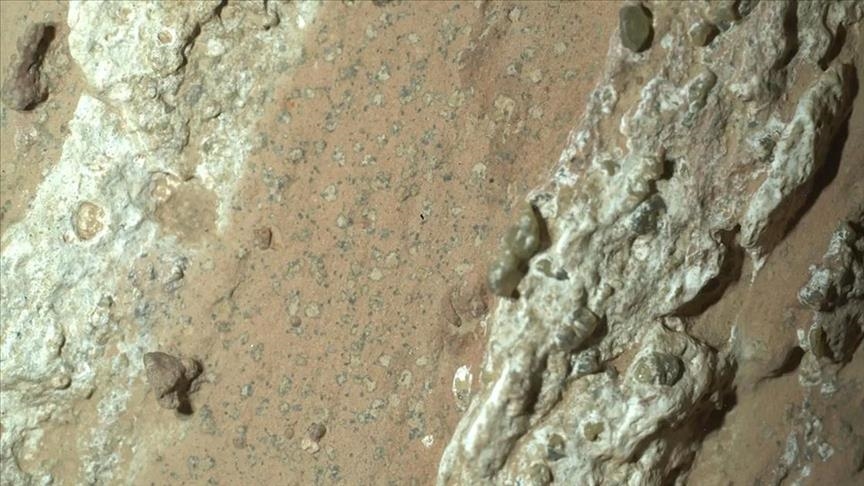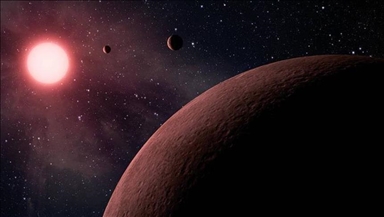NASA rover detects possible signs of microbial life on Mars
‘This is the closest we have ever come to discovering life on Mars,’ says acting NASA administrator

ISTANBUL
NASA’s Perseverance rover has detected possible signs of microbial life in a rock sample from an ancient Martian riverbed, researchers said Wednesday, calling it the most compelling evidence so far that the Red Planet may once have hosted living organisms.
The study, published in the journal Nature, analyzed a sample taken last year from Jezero Crater, once home to a vast river delta. Scientists said the sedimentary rock, nicknamed “Cheyava Falls,” contains chemical and mineral traces that could be linked to biological processes — though they cautioned that more testing is needed before confirming life’s presence.
“This is the closest we have ever come to discovering life on Mars,” acting NASA Administrator Sean Duffy said. “The identification of a potential biosignature on the Red Planet is a groundbreaking discovery, and one that will advance our understanding of Mars.”
The rover drilled the specimen — dubbed “Sapphire Canyon” — while surveying a rocky outcrop known as “Bright Angel.” Its instruments detected organic carbon, sulfur, phosphorus and iron compounds clustered in colorful mineral patches resembling leopard spots.
Some of those minerals, including vivianite and greigite, are often found on Earth in connection with microbial activity.





